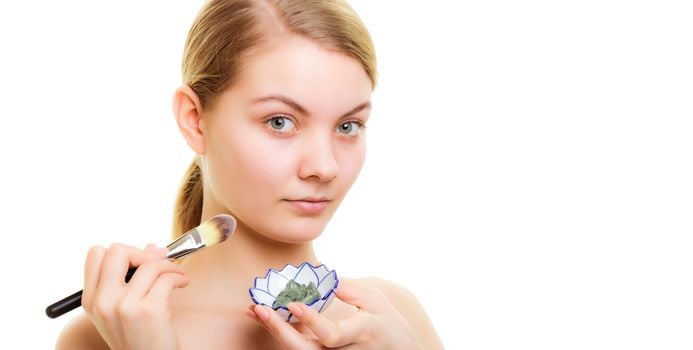Organic food and beauty products have become increasingly available in recent years due to a rise in demand for more natural goods. But what does it mean when it comes to makeup? If we are concerned with what we put into our bodies, should we also be concerned with the products we put on our bodies?
Think of all the products you use on your skin – from soap, lotion, fragrance, shampoo, deodorant, sunscreen, lip balm, to makeup, we expose our skin to numerous substances every day. The Environmental Working Group (EWG), a nonprofit organization focused on public health and the environment, found that women use an average of twelve personal care products daily and men average six from a 2004 survey. Skin acts like a sponge to soak up those products, and as a smart consumer, we should know how the ingredients might affect our health the same way that we scrutinize ingredients in food.
There is no scientific proof that organic ingredients in cosmetics are better or more effective than non-organic or synthetic ingredients; an organic lipstick won’t necessary last longer or smudge less. The concern lies in the many substances that are known or potential carcinogens (cancer-causing), or those which disrupt the hormonal and endocrine systems; these can legally be used in makeup and personal care products. While these chemicals are likely safe in small doses, it’s easy to see how using many products over the course of a day can add up to a lot of exposures.
The Food and Drug Administration (FDA) does not require pre-market testing for the majority of personal care products before they are sold to the public. Further, there are few ingredients that have been banned despite growing concerns about countless others. Over 1,000 cosmetic ingredients have been banned in the European Union due to fears that they may birth defects or cancer. In the U.S., only 10 ingredients have been banned. For example, hair-straightening treatments, often called a “Brazilian keratin,” contain formaldehyde – a known carcinogen. This type of hair process is banned in six countries but still permitted in the U.S.
What does “organic” mean when it comes to makeup? Companies can voluntarily have products certified organic by the U.S. Department of Agriculture (USDA). The USDA organic seal certifies that a product is made up of at least 95% organic ingredients. makeup made with 70% or more organic ingredients can be labeled, "made with organic ingredients." These products could therefore potentially contain up to 30% damaging ingredients.
Many find using organic products is better for the skin thanks to the lack of synthetic chemicals or dyes, which can reduce the risk of acne. Unfortunately, we aren’t certain how these chemicals affect us over time, or how they react with each other on the skin, due to the lack of research. If you would like to purchase products that contain fewer potentially harmful ingredients, look at the EWG online database, where you can search for specific products to see how it compares. The EWG also has an app, called Skin Deep, which scans a product’s barcode and displays the known information about the product. Think about the products that are absorbed into your skin the same way that you think about the food you ingest.
Carolyn McAnlis, RDN, is a Registered Dietitian Nutritionist who has a special interest in preventing chronic disease through nutrition. She graduated from Syracuse University with a Bachelor of Science in Nutrition Science & Dietetics and a minor in Psychology. After completing a full-time dietetic internship at the University of Virginia Health System, she has developed a passion for convincing others that healthy food can be delicious through her blog A Dietitian in the Kitchen.



